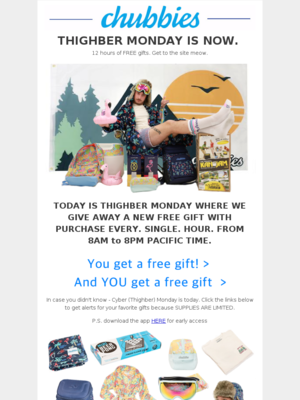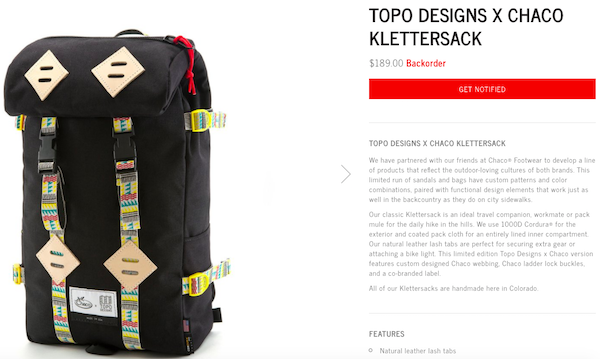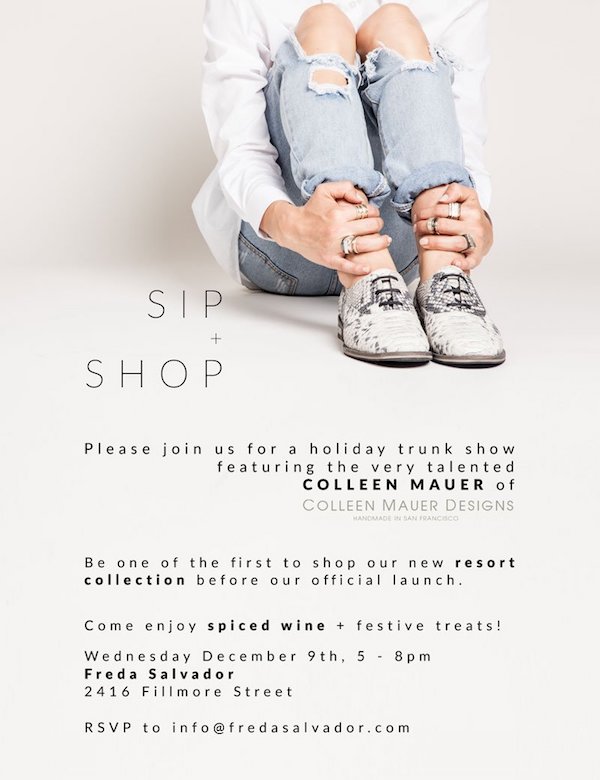A form of this article originally appeared on Stitch Labs. Stitch Labs is a purpose-built inventory management software to help brands improve customer experience and scale efficiency. Download the original guide here.
When we talk about the future of retail, industry news is abuzz with the idea of brands creating experiences for their customers. Consumers want more than an email newsletter—they want easy tracking and personalization. They want more than a product—they want community. The experiences we read about in headlines are often grandiose and costly, like virtual fitting rooms and same-day shipping. So, how can small- to mid-sized brands keep up with this trend in a cost-effective, creative way? With the help of scrappy teams and technology to automate processes, these brands are not only keeping up with the trend, but also are redefining it and leveraging it to grow. In this guide, we’ll discuss different approaches for building a memorable customer experience and how successful brands are executing on these creative ideas.
Automated Personalization Isn’t a Contradiction
Most businesses under-invest in customer loyalty, even though establishing some type of loyalty program is one of the most obvious ways retailers enhance their customer experience. Instead, they often put all of their eggs in the new customer acquisition basket. While this approach may work well in the early days of a business, it can be detrimental for scaling later. In order to set your business up for future success, you’ll want to think early on about a backend system that will scale with you. You’ll also want to think about today’s first-time customers who you hope will become tomorrow’s loyal brand advocates. As you grow in resources, you can consider many types of loyalty programs that will help you track and analyze customer behaviors and reward repeat purchases. If you’re starting out, there are simpler—yet still scalable— ways to personalize the customer experience. Customizing gifts based on the product someone buys is a thoughtful—yet realistic—way to make a customer feel warm and fuzzy about your brand. Chubbies, a clothing brand with an emphasis on the weekend lifestyle known for their colorful shorts and hilariously quirky marketing campaigns, figured out a way to send gifts without breaking the bank.

With their target customer in mind, they created add-on gifts like branded koozies, coasters, and baseball cards that fit within their lifestyle theme but are significantly less expensive than sending an additional item of clothing. The gifts can match the purchases, too. For example, sending sunscreen when someone buys a swimsuit, or golf tees when a customer purchases golf shorts. This program is able to delight the customer in a personalized way, without having to know personalized information about the customer. In automating this process, they can quickly swap out a gift that isn’t garnering excitement and track orders so customers don’t receive the same gift twice. Their customers are surprised and delighted to receive add-ons and their loyal social media followers will often post their latest gift, thus increasing brand awareness in addition to fostering loyalty.
Using Data To Improve Customer Experience
The previous section is all about personalising the offline experience with your brand, but what about improving the online one?
The better you know your customer, the better the experience you can deliver – on and off-line. Data from customer behavior on your eCommerce site allows you to better understand your customer and therefore engage with them in a way that is deeply personalized to their experiences with your brand. With customers being bombarded with emails and offers that have little relevance to how they’ve interacted with a brand, you can stand out with more targeted, personalized engagements.
To do this, a tool like Kissmetrics collects person-based behavioral data, defines and tracks key customer segments and then enables you to engage more effectively across email, facebook and more. You can segment by location, products purchased, time between events, etc. The more detailed you make your segmentation, the more easily you can personalize your messaging. Why does this matter? Because when you create refined segments of your many different customer types and tailor messaging uniquely toward just that segment you’re creating yet another delightful moment between your brand and your customer. Not to mention better suited engagements increase purchases and brand loyalty.
Collaborations: Combine Forces To Get New Customers
While brands obviously want customers to love their products enough to buy from them time and time again, we know no customer is 100 percent brand loyal. Even your most loyal customers have other brands they love and those are the very brands with whom you should consider working. Topo Designs, a Denver-based outdoor apparel and bag company, has partnered with brands like Woolrich and Chacos (not direct competitors, but other brands Topo’s target customer loves!) to create unique, limited-edition items that they then promote across both of their customer bases.
Even if your brand doesn’t have the desire or resources to make physical products with another brand, there are many ways to collaborate with lower barriers to entry. Find brands with similar audiences and aesthetic and stock each other’s items in your brick and-mortar stores. Create a themed “swag bag” with several other brands and host an Instagram giveaway by having followers tag three friends for a chance to win. Similarly, host a giveaway where those who enter to win agree to sign up for your and your partners’ email lists.
Austin-based metallic tattoo and accessories company, Flash Tattoos is always finding ways to collaborate with brands who share target audiences. Entries can be as simple as tagging friends in an Instagram post or you could go so far as to have people fill out a form to ensure you’re capturing email addresses (and even additional information you can use to collect data). Keep in mind, the more involved the entry procedure, the more desirable you’ll want to make your prize.
Events: The Low Cost Way To Get Foot Traffic In Your Store
Want an even easier way to collaborate with other brands—without having to give away free product? Consider hosting an event at your store (or theirs). Modern Citizen, a San Francisco-based women’s apparel brand, hosts a series of events both with and without partners to foster a sense of community while getting people into their physical store. For one event, they teamed up with Fashion Incubator SF, a nonprofit that supports up and coming fashion designers. They hosted an open discussion with the two founders and answered questions from the audience—which was made up mainly of their exact target demographic. The total cost of the event was buying donuts and coffee for 30 people (who each purchased $10 tickets to attend, the proceeds of which were donated to Fashion Incubator SF) but they were able to establish themselves as thought leaders and make sales from the shopping attendees did after the talk. Additionally, they sent an email after the event thanking everyone who attended and included a 15 percent off coupon code that expires at the end of the month, encouraging further shopping as well as a sense of urgency and immediacy.
But what if you don’t have a physical store? Brands everywhere are using popups to boost awareness and collect data in a cost-effective way. Whether it’s renting a booth at a local fair or event or even creating a mobile trailer to determine the best location for your next (or first!) brick-and-mortar, temporary shops are great ways to gauge interest and build hype without breaking the bank.
Build a Community
Many brands are still at loss when it comes to Amazon. Is it better to adopt a, ‘if you can’t beat ‘em, join ‘em’ approach, or try to compete as best you can with the behemoth? Building a community is small to mid-sized brands leg up on Amazon. They may provide same day shipping and low costs, but they don’t provide the customer experience that’s only increasing in importance for today’s consumer. One team hyper-focused on building a community and showing their customers they’re much more than a shoe brand is Freda Salvador. Through their mobile shoe trailer, in-store events, and collaborations with other brands, Freda Salvador is everywhere their customer is.
Similar to Modern Citizen, the Freda team hosts in-store events that both increase foot traffic and brand awareness while simultaneously creating a sense of community between customers and the brand. They often choose tangentially related concepts that their target customer is interested in—like a flower arrangement workshop, a skin care workshop, etc. Since they aren’t actually selling anything Freda-related at the event or even talking about their brand, this is a great way to foster a sense of community in an authentic way.
Have a Backend That Supports Your Initiatives
There are so many creative ways to enhance your consumer experience but even the most well-intentioned plan can have the opposite effect on customer retention if your backend can’t support it. These creative ideas are great ways to connect with your customer, but you first and foremost must master the most basic customer experience: getting the right product, to the right person, at the right time. If someone can’t count on your brand for clear and descriptive product pages, easy checkout, and speedy delivery, you’ve already fallen behind. So, before you begin creating the experience of your customers’ dreams, get organized and make sure you have the right systems and people in place. Stitch Labs provides brands with visibility into their inventory at all times and across all channels, allowing them to be more efficient with their inventory. Stitch connects to your eCommerce site, 3PL, and marketplaces to make sure inventory numbers are accurate and you know where a product is at all times. This level of control lets you not worry about inventory, so you can focus on what matters most—your customers.
from The Kissmetrics Marketing Blog http://ift.tt/2IGIYm6
via IFTTT



